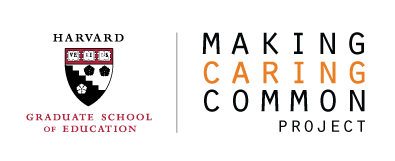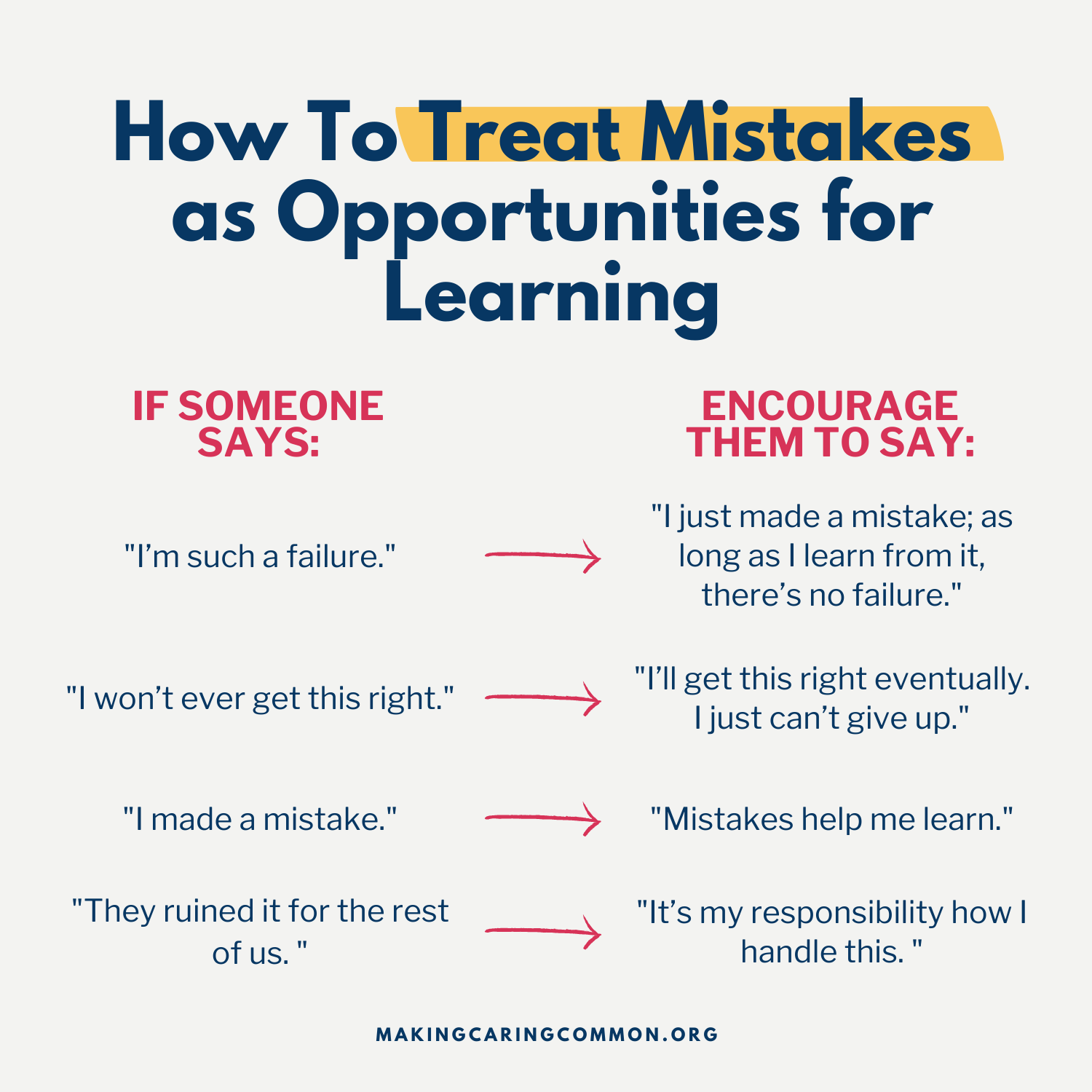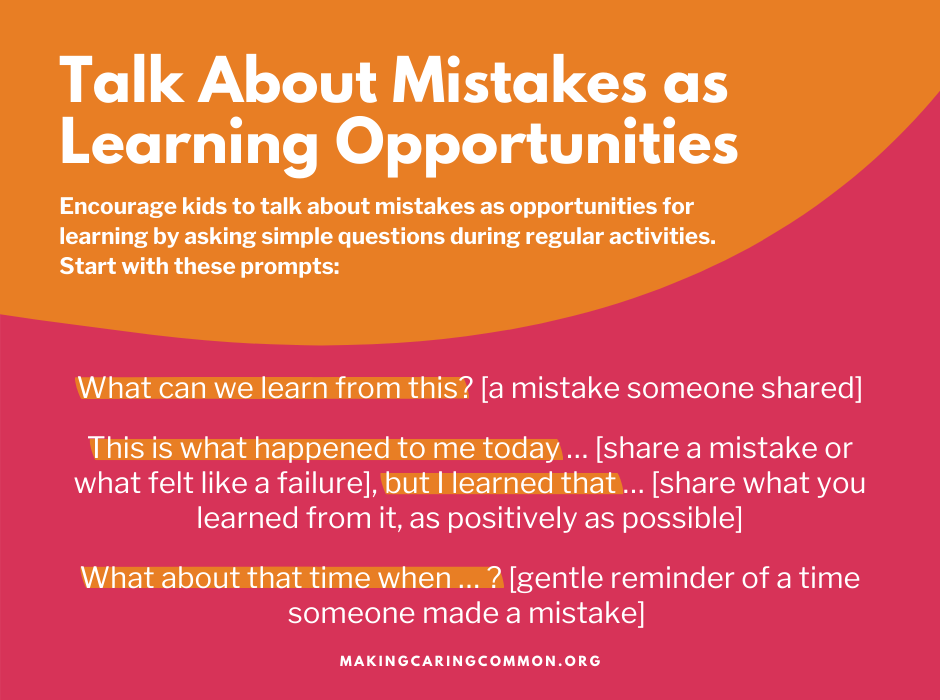How to Help Kids Learn From Mistakes
It’s normal to make mistakes or to not be able to achieve all goals we set out for ourselves. But it’s the personal stories or explanations that we create for ourselves about these mistakes that matter for how we feel and how we handle them — in the present and in the future. Reframing mistakes as opportunities from which we can learn — rather than failures alone — can help us feel like we are capable and in control. Reframing can also help us handle future mistakes more effectively. Adults can help kids figure out how to approach their mistakes constructively by modeling this behavior. Talking openly about our own mistakes can be challenging, but doing so regularly teaches children that mistakes are something to learn from rather than something to hide.
Below are four key steps for adults to help kids learn from mistakes.
1. Talk openly about mistakes
Share about a time when you made a mistake: what happened, how you handled it (even if it wasn’t so well, at first), and what you learned. Most likely, this will come up naturally when kids experience a setback or make a mistake and you want to relate to them. For example, if they failed a test you could share a time you failed a test too - you might share that you learned to start studying earlier or ask the teacher for extra help before the next test.
TIP FOR PARENTS: IT CAN BE TEMPTING TO BLAME OTHERS FOR OUR MISTAKES, BUT STAY POSITIVE AND FOCUS ON WHAT YOU DID OR COULD HAVE DONE TO IMPROVE THE SITUATION.
2. Reframe mistakes as opportunities for learning
You might point out that it can feel bad to make a mistake but try to stay positive and reframe mistakes as opportunities for learning. Talking about mistakes can be hard but with the right language, they’ll eventually become sources of inspiration, not shame.
How to treat mistakes as opportunities for learning
3. Spot opportunities around you
One of the best ways to learn something is by applying it to everyday life. So encourage one another to notice mistakes around you — and find opportunities to solve them. For example, you might notice your brother is always late to soccer practice because he snoozes his alarm too much. Suggest that he place his alarm clock far away so he’s forced to get up and turn it off!
4. Make it a habit
Talk about mistakes and lessons learned during weekly activities like mealtimes or commuting. If someone consistently has trouble thinking of an example, share your own mistake (or feeling of failure) first and then ask if anyone can relate or think of something similar.
Talking about mistakes as learning opportunities
Additional Information
The Science Behind These Recommendations
Learning from mistakes is a topic that has been researched extensively. Here are key resources we consulted - in addition to experts and parents - that are behind the recommendations shared on this page:
Cohen, G. L., & Sherman, D. K. (2014). The psychology of change: self-affirmation and social psychological intervention. Annual Review of Psychology, 65, 333-371. [Abstract]
Dweck, C. S. (2012). Mindsets and human nature: Promoting change in the Middle East, the schoolyard, the racial divide, and willpower. American Psychologist, 67(8), 614–622. [Abstract]
Jones, B. K., Destin, M., & McAdams, D. P. (2018). Telling better stories: Competence-building narrative themes increase adolescent persistence and academic achievement. Journal of Experimental Social Psychology, 76, 76–80. [Abstract]
McLean, K. C., Wood, B., & Breen, A. V. (2013). Reflecting on a difficult life: Narrative construction in vulnerable adolescents. Journal of Adolescent Research, 28(4), 431–452. [Abstract]







